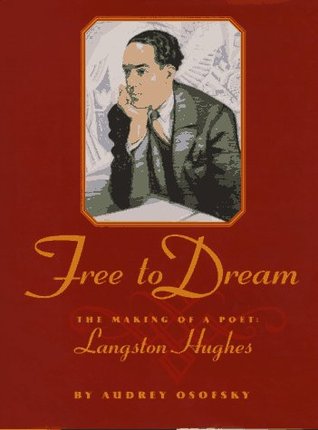I'm struck by this new piece of information I learned about Hughes today because, by all intents and purposes, he should have been a model student: he loved learning, did well all throughout his K-12 education, and was often recognized for his writing prowess by his teachers and classmates. If that's not a formula for someone who should succeed in college, then I don't know what is.
But that's just it. Education can't be whittled down to a formula - numbers to crunch, multiple choice questions to answer. By today's educational reformers, Hughes would be considered a failure. Politicians would deem him a product of a failed system and no doubt his teachers would be blamed (and perhaps fired) for his inability to understand physics and trigonometry, which were the classes he chose to skip and ultimately drop out of Columbia.
But in the 1920s, Hughes used his passion for writing and poetry to seek out like-minded, accomplished people who took him under their wing and nurtured his passion and talent, which we now know turned him into one of the most beloved writers in all of American history. I continue to wonder how people responsible for making decisions about education today can be so narrow minded and refuse to see past the numbers and into the minds and hearts of our students. While we're busy trying to "race to the top", students' needs and talents are disregarded. (Does anyone else see the irony in the fact that Arne Duncan has deemed "No Child Left Behind" a failure yet, with a name like "Race to the Top", the initiative which he created to replace NCLB, isn't the very nature of a race to leave people behind?)
 | |
| Langston Hughes: a CCSS poster boy he is not (photo: Poetry Foundation) |
*~*~*~*~*~*
I've been scarred and battered.
My hopes the wind done scattered.
Snow has friz me, sun has baked me.
Looks like between 'em
They done tried to make me
Stop laughin', stop lovin', stop livin' --
But I don't care!
I'm still here!
from "Still Here" by Langston Hughes


I love this, especially the last paragraph. It's like you've taken my thoughts and feelings from the past year and put them into words! Keep on being a great teacher :)
ReplyDeleteIt is a valid point - I teach high school junior English and one thing I tell my students to pay attention to is the pattern of authors that did not go to college or who went and dropped out.
ReplyDeleteIt opens an intriguing conversations with students on where they see their own futures, and how we as educators can make the educational process worth their time.
The #1 complaint from my kids: we re-do the same things every single year. We feel like we aren't learning anything new.
I asked students to write me a seven-sentence paragraph. I had one say, "Seven sentences? I learned paragraphs are three sentences."
Me: "In what grade?"
Student: "In elementary school."
How do we move these kids forward into their learning, to help them understand that learning is a life-long process?
They've lost that. They've learned that they are worth nothing more than filling in a box. Ask them to complete short answer/essay questions? I might as well tell them that their birthdays won't come this year.
We are starting to see the full affects of NCLB, and I fear for what is coming next.
Crys
This post is amazing!! I adore Langston Hughes and this post is awesome!
ReplyDeleteLoved this post!
ReplyDelete